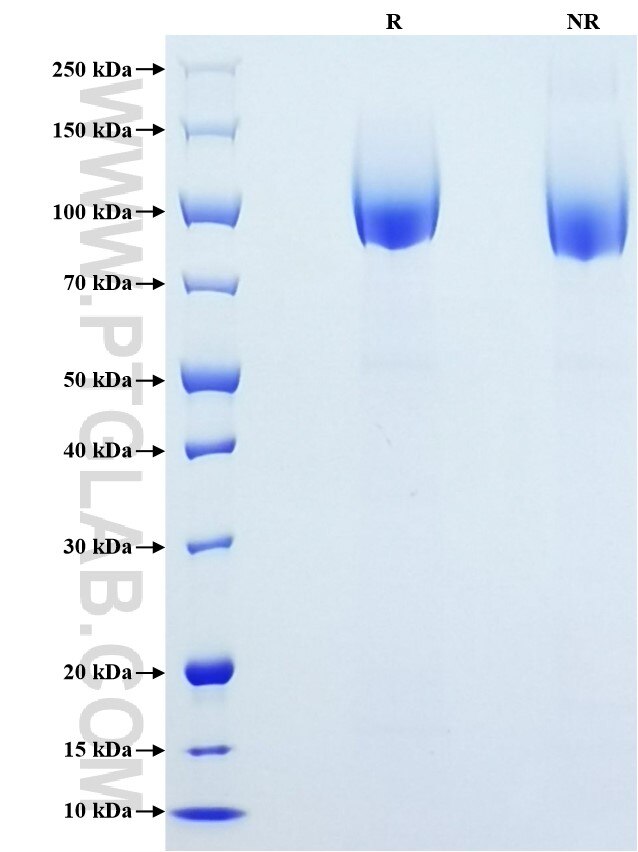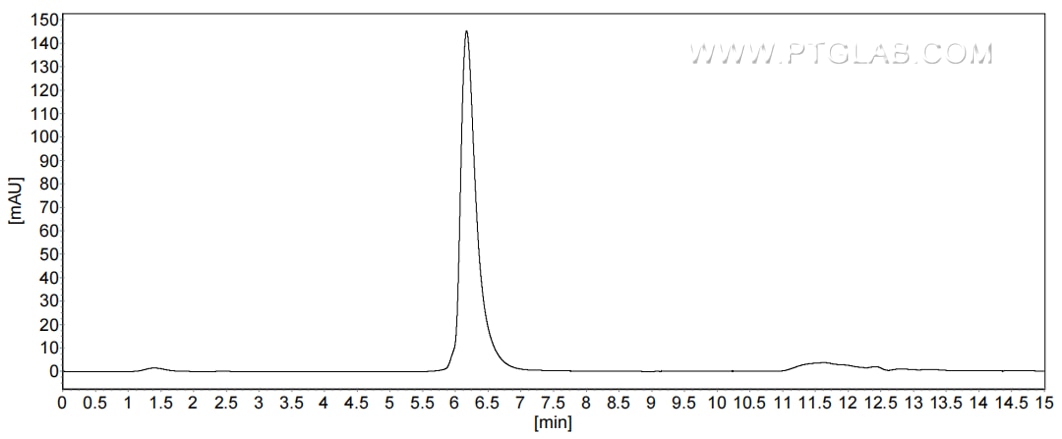Recombinant Human CEA/CD66e protein (His Tag)(HPLC verified)
Species
Human
Purity
>90 %, SDS-PAGE
>90 %, SEC-HPLC
Tag
His Tag
Activity
not tested
Cat no : Eg0449
Validation Data Gallery
Product Information
| Purity | >90 %, SDS-PAGE >90 %, SEC-HPLC |
| Endotoxin | <0.1 EU/μg protein, LAL method |
| Activity |
Not tested |
| Expression | HEK293-derived Human CEA protein Lys35-Ala685 (Accession# NP_004354.2) with a His tag at the C-terminus. |
| GeneID | 1048 |
| Accession | NP_004354.2 |
| PredictedSize | 72.6 kDa |
| SDS-PAGE | 85-120 kDa, reducing (R) conditions |
| Formulation | Lyophilized from 0.22 μm filtered solution in PBS, pH 7.4. Normally 5% trehalose and 5% mannitol are added as protectants before lyophilization. |
| Reconstitution | Briefly centrifuge the tube before opening. Reconstitute at 0.1-0.5 mg/mL in sterile water. |
| Storage Conditions |
It is recommended that the protein be aliquoted for optimal storage. Avoid repeated freeze-thaw cycles.
|
| Shipping | The product is shipped at ambient temperature. Upon receipt, store it immediately at the recommended temperature. |
Background
Carcinoembryonic antigen (CEA), also known as CD66e or CEACAM5, is a cell surface glycoprotein belonging to the immunoglobulin superfamily, mainly serving as a cell adhesion molecule mediating intercellular contact by both homophilic and heterophilic binding. CEA inhibits anoikis and plays a role in tumorigenesis and metastasis. CEA has been found to be overexpressed in a wide variety of human cancers, including colon, breast, and lung. CEA is a tumor marker and is routinely exploited for diagnosis.
References:
1.S Benchimol, et al. (1989) Cell. 57(2):327-34. 2.Chaogu Zheng, et al. (2011) PLoS One. 6(6):e21146. 3.Cosme Ordonez, et al. (2007) J Cell Physiol. 210(3):757-65.


